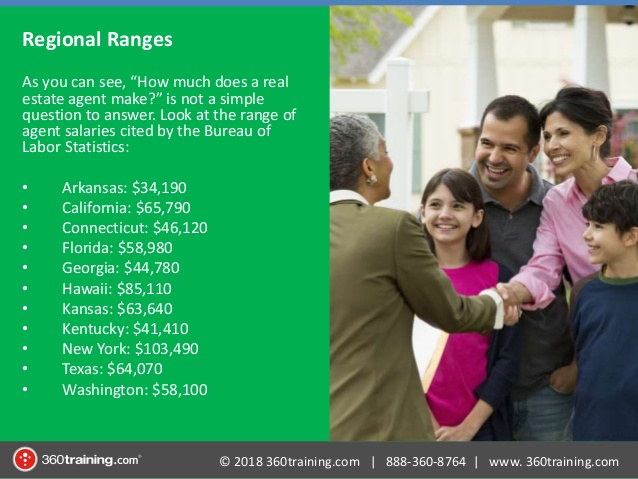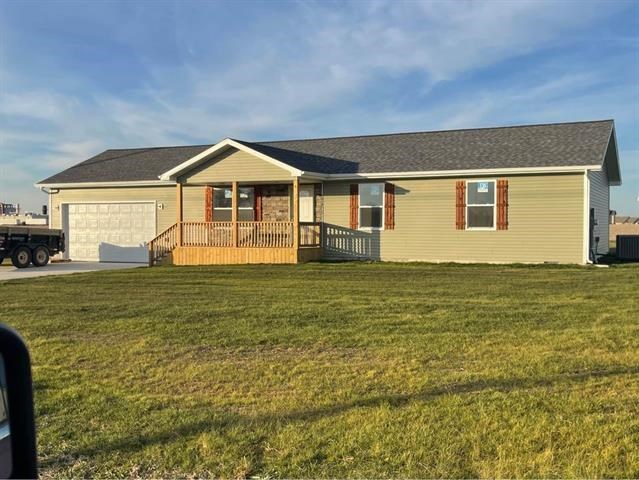
Real estate taxes can be applied to both residential and business properties. These taxes help fund schools, water, roads, parks, and sewer repairs. Property taxes are based on the assessed value of your home and land, and can vary greatly by region.
How to Calculate Your Taxes
There is no single way to estimate the annual property tax bill. Rates vary from one region to another. For more information, contact your local government or a tax attorney.
Real estate agents typically pay a percentage of their income in taxes each year, which can make it challenging to determine how much you'll owe to the IRS. These tips and tricks can help you calculate tax more accurately.
First, you must know how to find your assessed home and land value. This number can be found in the annual tax notice of your municipality or county, at the office of the local tax assessor or on their website.

Next, multiply that number by a rate of tax assessment and you can calculate your property taxes. The tax rate can vary from one jurisdiction to another and may be as low as 1% or higher, depending on the country.
A tool called SmartAsset Property Tax Calculator can help you get an estimate of the tax bill. This calculator will show you the estimated value of your home and any other properties, including land, that will determine how much you will pay in property taxes.
How do realty agents pay their taxes
Real estate agents must also pay their property taxes in addition to their income taxes. This covers both the property and personal property, including cars and boats that may be parked on the property.
A realty business is not an incorporation, so the owner must file his or her tax return every year. This can be a complex process so it is important to consult a professional in order to file your tax returns correctly.
How to Deduct Expenses from Your Real Estate Profits
Real estate investors should make sure to take advantage of every deduction available in order to save money during tax time. This can include advertising expenses and appraisal fees.

Another key way that real estate investors can save on their taxes is by keeping proper records. This includes receipts for any purchases you make for your business as well as documents such business cards.
Real estate professionals also have the option of a loss deduction on their real-estate investments as well an exemption from the Medicare 3.8 percent Medicare tax on income earned. This tax cut can help realty brokers and agents earn more while maintaining a healthy income.
FAQ
What amount of money can I get for my house?
The number of days your home has been on market and its condition can have an impact on how much it sells. Zillow.com shows that the average home sells for $203,000 in the US. This
Is it cheaper to rent than to buy?
Renting is usually cheaper than buying a house. It's important to remember that you will need to cover additional costs such as utilities, repairs, maintenance, and insurance. The benefits of buying a house are not only obvious but also numerous. You will be able to have greater control over your life.
What should I look out for in a mortgage broker
A mortgage broker helps people who don't qualify for traditional mortgages. They compare deals from different lenders in order to find the best deal for their clients. Some brokers charge fees for this service. Others provide free services.
Should I use an mortgage broker?
If you are looking for a competitive rate, consider using a mortgage broker. Brokers work with multiple lenders and negotiate deals on your behalf. Some brokers receive a commission from lenders. Before signing up, you should verify all fees associated with the broker.
How many times can my mortgage be refinanced?
This will depend on whether you are refinancing through another lender or a mortgage broker. In both cases, you can usually refinance every five years.
Statistics
- This means that all of your housing-related expenses each month do not exceed 43% of your monthly income. (fortunebuilders.com)
- 10 years ago, homeownership was nearly 70%. (fortunebuilders.com)
- Private mortgage insurance may be required for conventional loans when the borrower puts less than 20% down.4 FHA loans are mortgage loans issued by private lenders and backed by the federal government. (investopedia.com)
- Based on your credit scores and other financial details, your lender offers you a 3.5% interest rate on loan. (investopedia.com)
- Some experts hypothesize that rates will hit five percent by the second half of 2018, but there has been no official confirmation one way or the other. (fortunebuilders.com)
External Links
How To
How to Manage A Rental Property
Renting your home can be a great way to make extra money, but there's a lot to think about before you start. We'll help you understand what to look for when renting out your home.
Here are the basics to help you start thinking about renting out a home.
-
What is the first thing I should do? You need to assess your finances before renting out your home. If you are in debt, such as mortgage or credit card payments, it may be difficult to pay another person to live in your home while on vacation. Check your budget. If your monthly expenses are not covered by your rent, utilities and insurance, it is a sign that you need to reevaluate your finances. It might not be worth the effort.
-
How much does it cost to rent my home? There are many factors that influence the price you might charge for renting out your home. These factors include the location, size and condition of your home, as well as season. Remember that prices can vary depending on where your live so you shouldn't expect to receive the same rate anywhere. Rightmove reports that the average monthly market price to rent a one-bedroom flat is around PS1,400. This means that your home would be worth around PS2,800 per annum if it was rented out completely. It's not bad but if your property is only let out part-time, it could be significantly lower.
-
Is this worth it? It's always risky to try something new. But if it gives you extra income, why not? You need to be clear about what you're signing before you do anything. Your home will be your own private sanctuary. However, renting your home means you won't have to spend as much time with your family. Before you sign up, make sure to thoroughly consider all of these points.
-
Are there any advantages? It's clear that renting out your home is expensive. But, you want to look at the potential benefits. Renting your home is a great way to get out of the grind and enjoy some peace from your day. It is more relaxing than working every hour of the day. If you plan well, renting could become a full-time occupation.
-
How do I find tenants? Once you've decided that you want to rent out, you'll need to advertise your property properly. Start by listing online using websites like Zoopla and Rightmove. Once you receive contact from potential tenants, it's time to set up an interview. This will help you assess their suitability and ensure they're financially stable enough to move into your home.
-
What can I do to make sure my home is protected? You should make sure your home is fully insured against theft, fire, and damage. You will need insurance for your home. This can be done through your landlord directly or with an agent. Your landlord will usually require you to add them as additional insured, which means they'll cover damages caused to your property when you're present. If your landlord is not registered with UK insurers, or you are living abroad, this policy doesn't apply. You will need to register with an International Insurer in this instance.
-
Sometimes it can feel as though you don’t have the money to spend all day looking at tenants, especially if there are no other jobs. Your property should be advertised with professionalism. Make sure you have a professional looking website. Also, make sure to post your ads online. Additionally, you'll need to fill out an application and provide references. Some people prefer to do everything themselves while others hire agents who will take care of all the details. Interviews will require you to be prepared for any questions.
-
What should I do once I've found my tenant? If you have a current lease in place you'll need inform your tenant about changes, such moving dates. If you don't have a lease, you can negotiate length of stay, deposit, or other details. Keep in mind that you will still be responsible for paying utilities and other costs once your tenancy ends.
-
How do you collect the rent? When the time comes for you to collect the rent you need to make sure that your tenant has been paying their rent. If your tenant has not paid, you will need to remind them. Any outstanding rents can be deducted from future rents, before you send them a final bill. If you're struggling to get hold of your tenant, you can always call the police. They won't normally evict someone unless there's been a breach of contract, but they can issue a warrant if necessary.
-
How can I avoid problems? Although renting your home is a lucrative venture, it is also important to be safe. Make sure you have carbon monoxide detectors installed and security cameras installed. You should also check that your neighbors' permissions allow you to leave your property unlocked at night and that you have adequate insurance. Finally, you should never let strangers into your house, even if they say they're moving in next door.